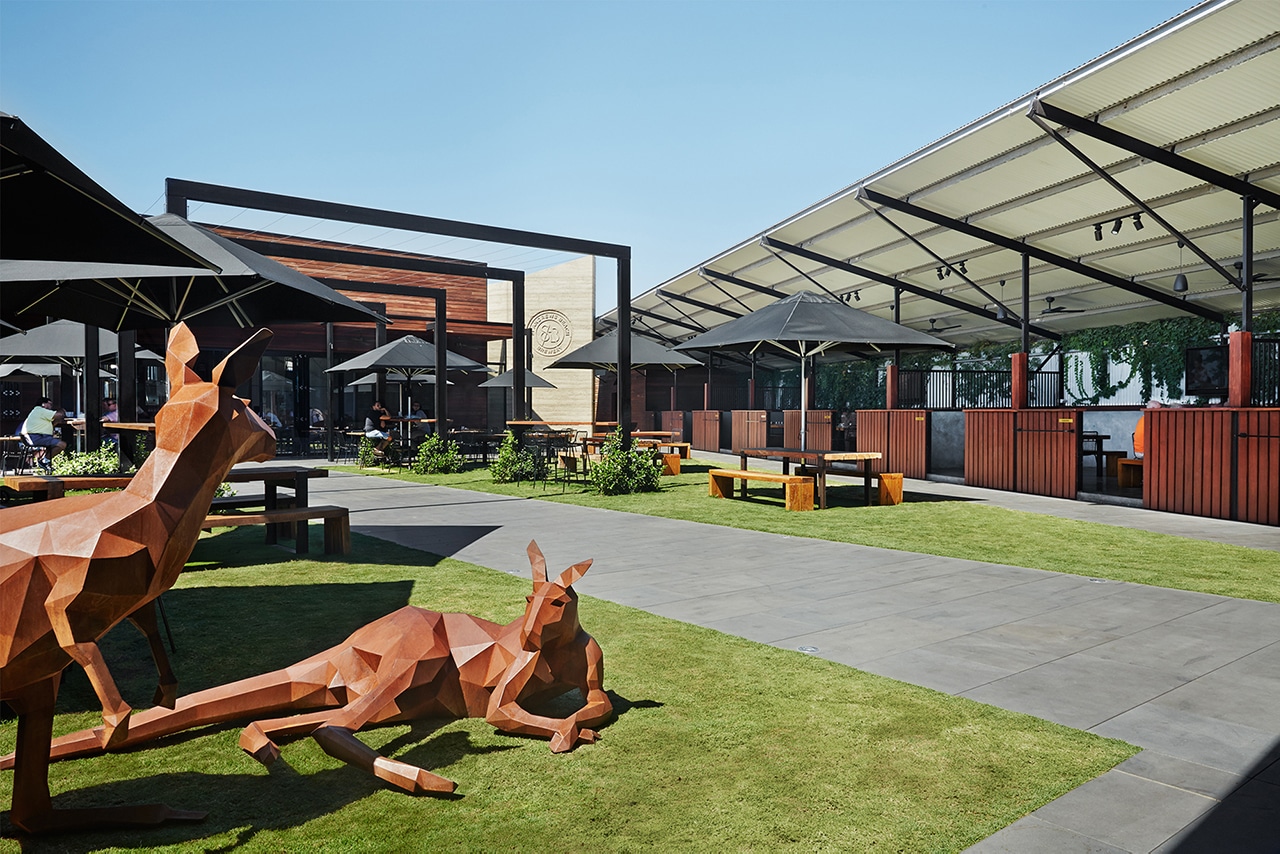
Metal kangaroo sculptures greet brewery visitors in the spacious courtyard area. [Photo: Fiona Storey]
St Andrews Beach Brewery has repurposed a 92-acre former horse-training facility into a restaurant, brewery, and farm.
With more outdoor seating than indoor, St Andrews Beach Brewery makes the most of the warm weather on the Mornington Peninsula in sunny Victoria, Australia. On the other side of a bold entryway, grassy fields welcome bar-goers at farm-style tables, shaded under black patio umbrellas. That’s just the start of St Andrews—away from the courtyard, the tasting rooms, or the glass brewery on display, is a functioning farm, providing the restaurant and bar with fresh produce.
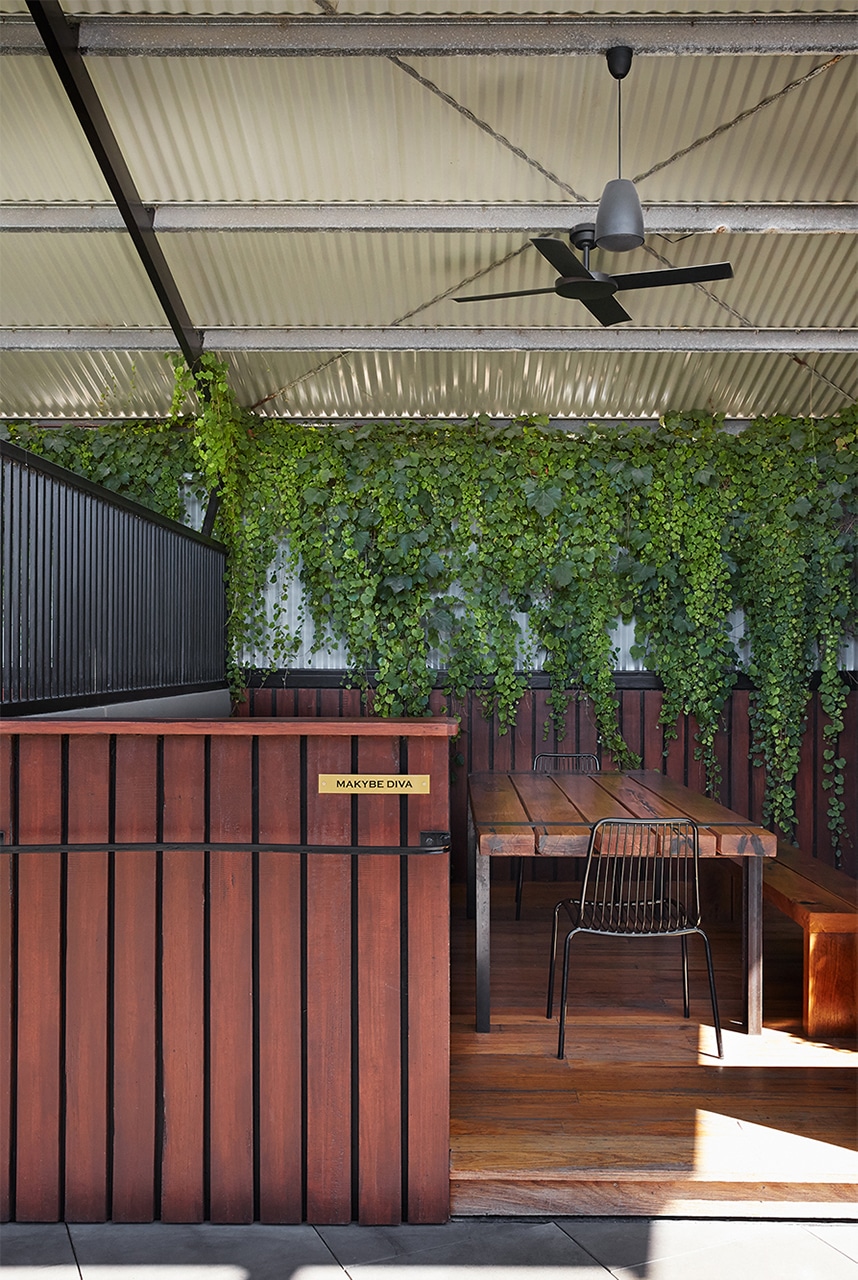
Former stables were transformed into private seating areas like this one, named after famed Thoroughbred Makybe Diva. [Photo: Fiona Storey]
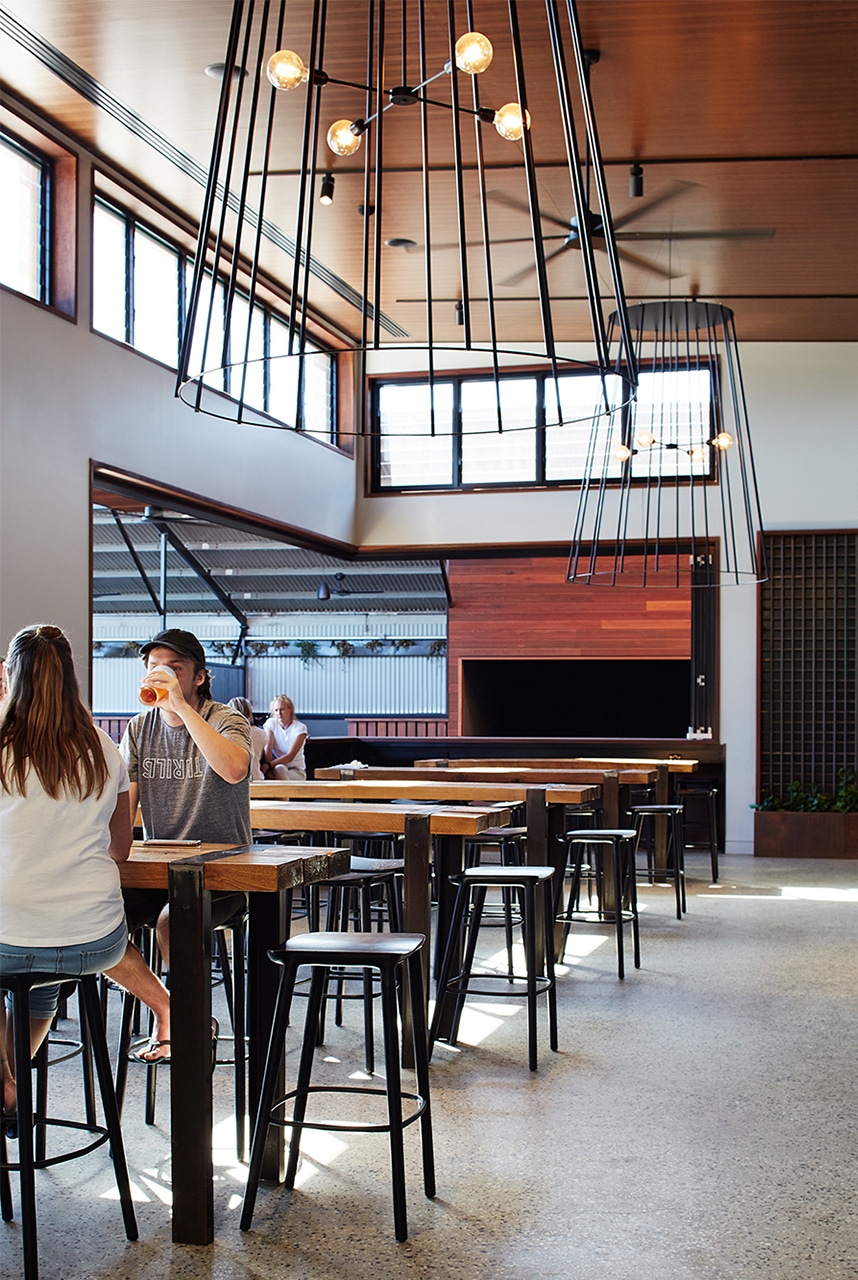
The majority of seating is outdoors, but the indoor areas still offer plenty of natural light and open space. [Photo: Fiona Storey]
The brewery sits on a 92-acre property, formerly known as “Markdel”, once owned and operated by the Freedom brothers, one of Australia’s most successful horse training families. In 2012, the brothers announced they would be leaving their expansive facility for something more manageable. Over six years later, horses have given way to hops, and while the transformation has left the property nearly unrecognizable, its rich history is reflected consistently in the brewery’s design.
“The most challenging aspect for us was that we wanted to pay homage to the existing fabric of the site and reimagine as much of the structure and materiality as we could, as this aligned directly with the sustainable aspects of the business itself,” says Toby Ewert, director of Ewert Leaf, the architecture firm that handled the transition.
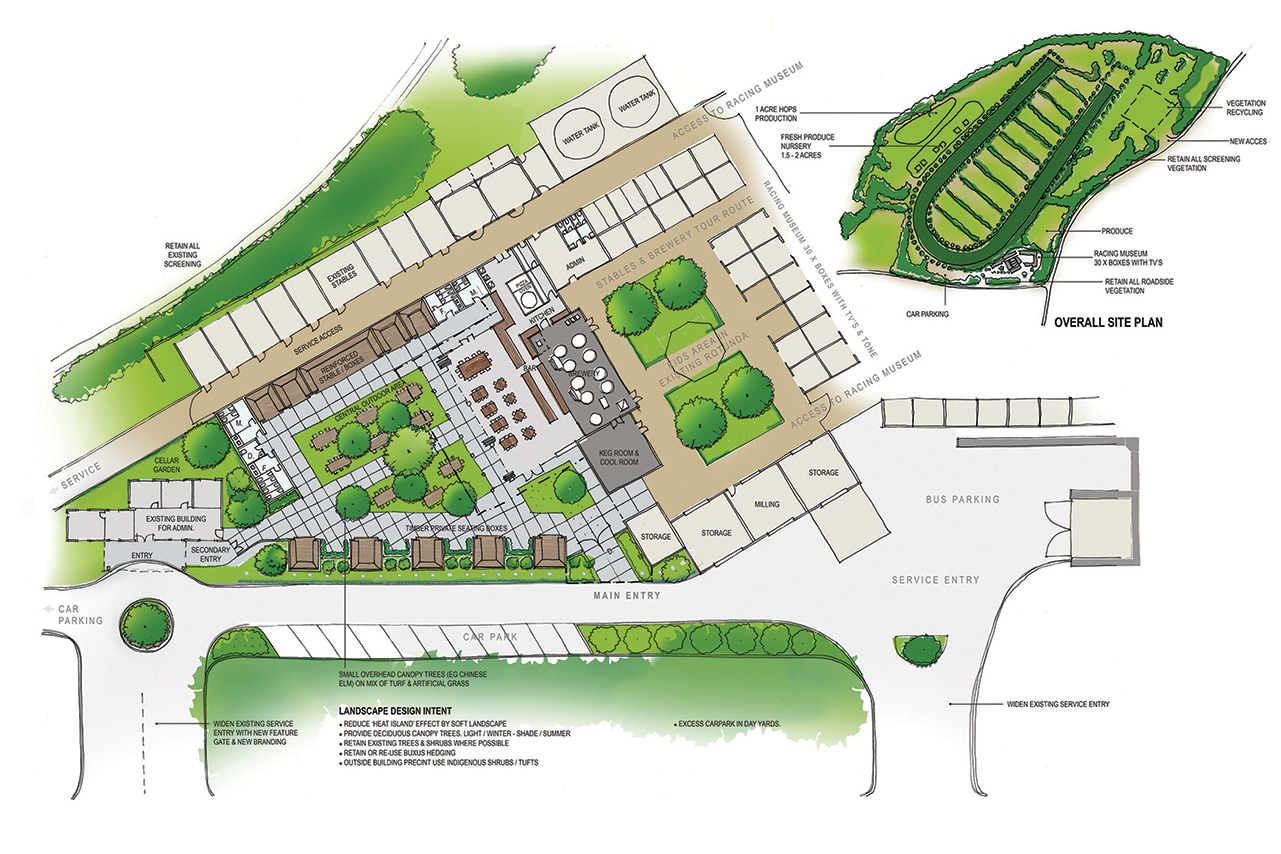
[Plan: Courtesy of Ewert Leaf]
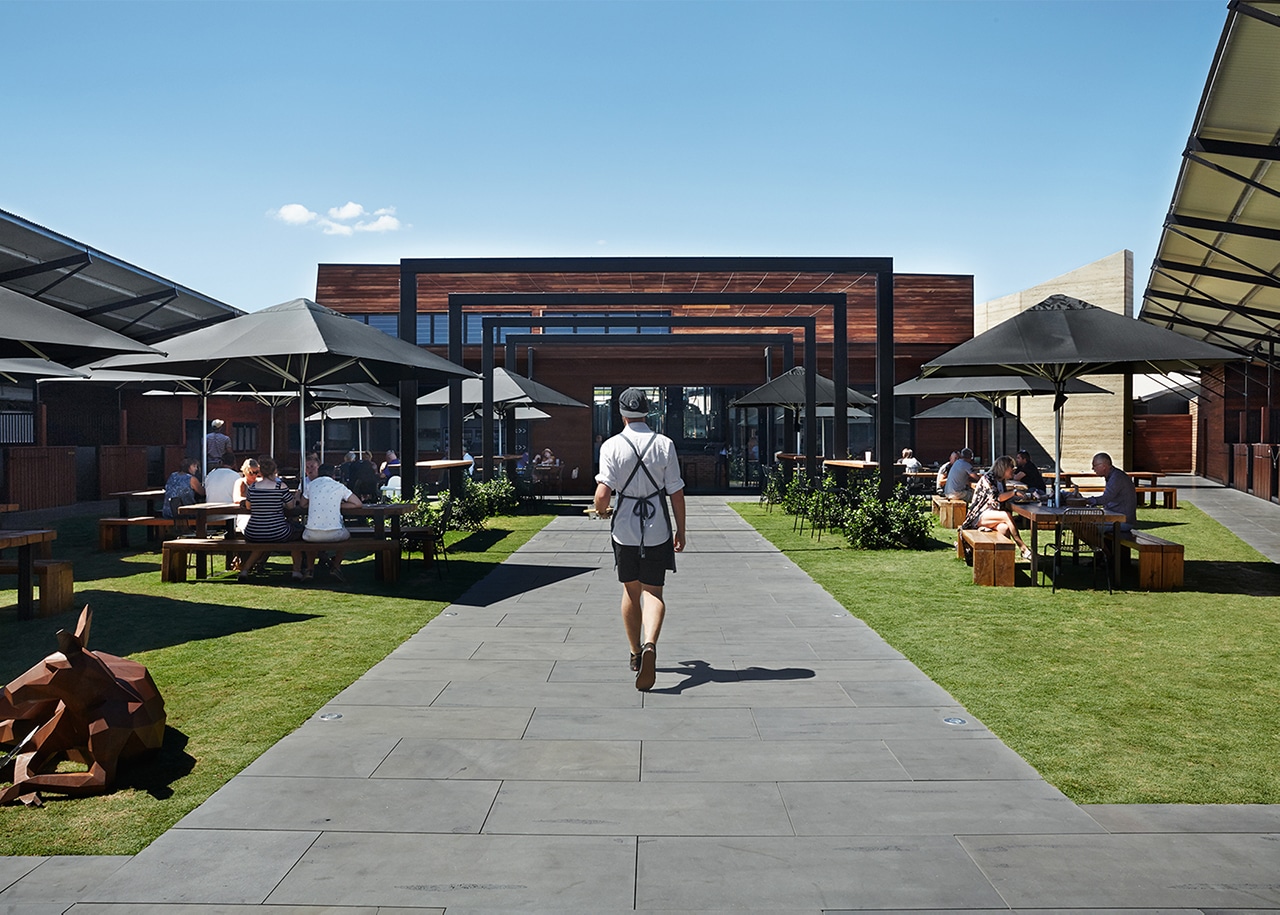
Rustic meets contemporary meets sustainable at this Australian brewery near the Bass Strait. [Photo: Fiona Storey]
Sixteen of the original horse stables were transformed into private seating areas, each named after a champion that once trained on the site—like Makybe Diva, the first three-time Melbourne Cup winner. The former 1200-meter track is now an orchard, with over 8,000 apple and pear trees that will supply the fruit for the brewery’s ciders. Also along the property are substantial gardens that provide seasonal fruits and vegetables to the kitchen and hops that go straight to the brewery. Whatever doesn’t get used is fed to the pigs, sheep, and chickens kept in retired horse stables on the property. The land is considered a “green wedge” by the Victoria government, meaning within five years’ time, 50% of the produce used in the brewery and restaurant will come from the site. Ewert Leaf calls the concept “paddock to plate” with a “tank to glass” brewery.
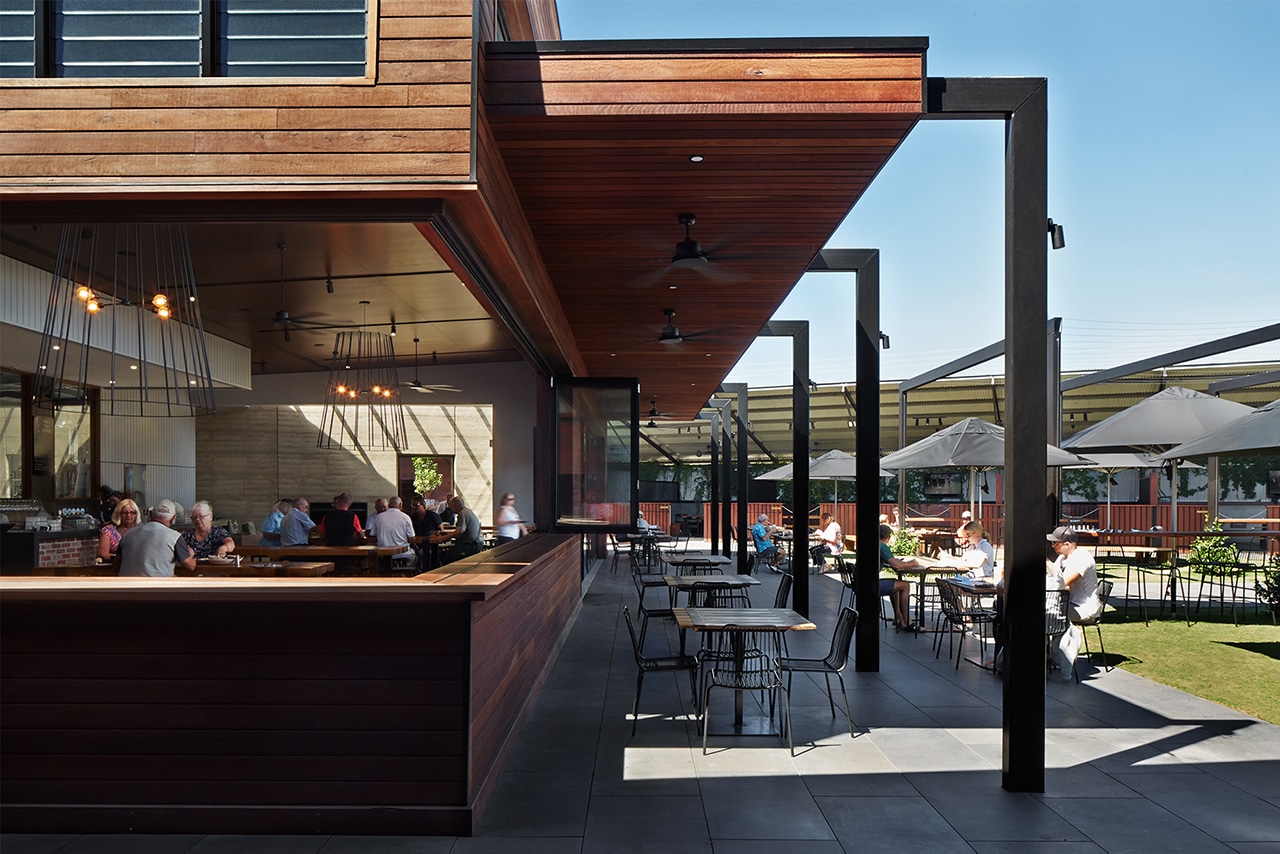
[Photo: Fiona Storey]
It’s not just the land that’s been repurposed at St Andrews, the venue’s bar face is made from recycled bricks—contrasting with the glossy titanium counter, reflecting the balance between rustic and modern that they’ve managed to achieve. Internal walls were constructed using rammed earth, furniture was built from salvaged timber, and slab hydronic heating and jalousie windows are used for natural ventilation. In short, sustainable practices are prioritized inside and out of the brewery.
